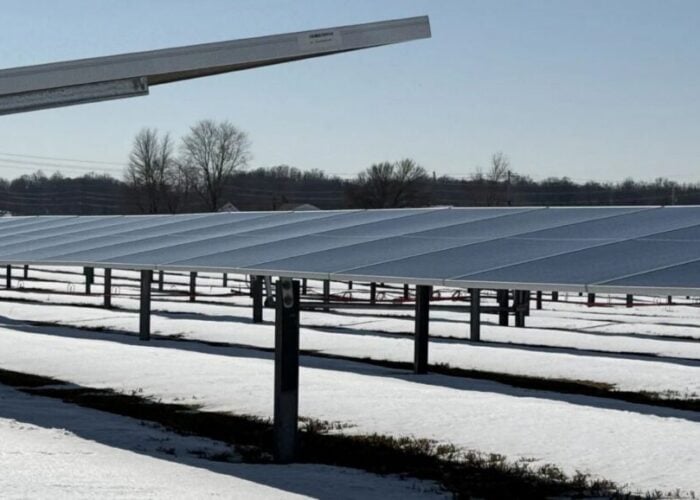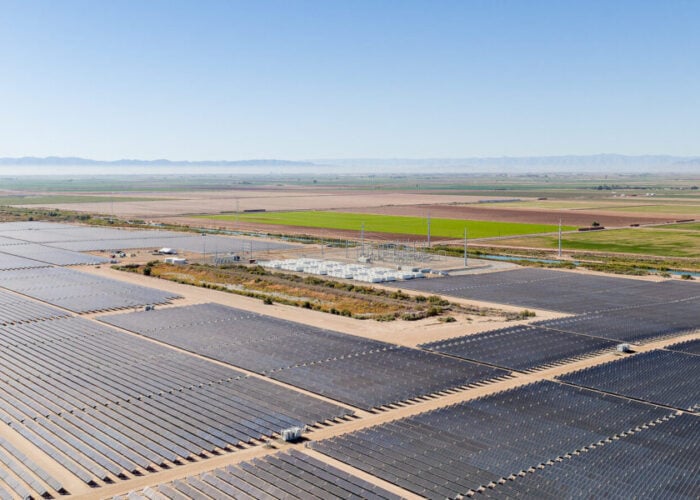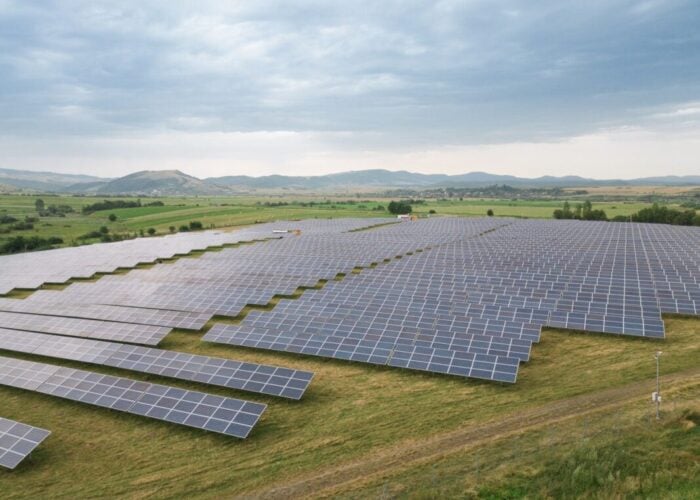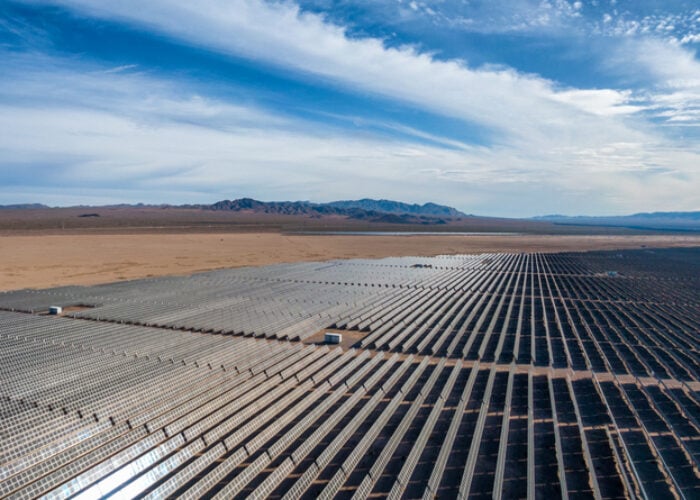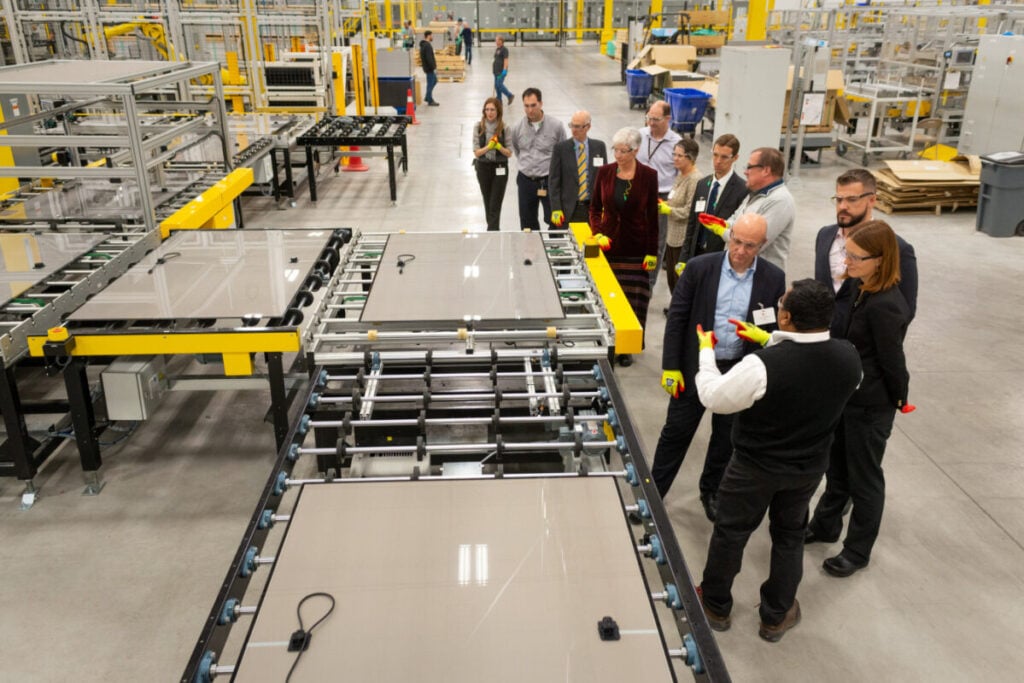
The American National Standards Institute (ANSI) has approved a new traceability standard proposed by the US Solar Energy Industries Association (SEIA) to improve transparency of the solar and storage supply chain.
The standard, ANSI/SEIA 101, sets out standards of due diligence and data collection that manufacturers and importers of solar and storage products will need to follow. It also provides a “traceability management programme” to help such companies improve their work towards making supply chains more transparent.
Try Premium for just $1
- Full premium access for the first month at only $1
- Converts to an annual rate after 30 days unless cancelled
- Cancel anytime during the trial period
Premium Benefits
- Expert industry analysis and interviews
- Digital access to PV Tech Power journal
- Exclusive event discounts
Or get the full Premium subscription right away
Or continue reading this article for free
“The standard provides a framework for establishing a traceability management programme designed to identify the source of a product’s material inputs and trace the movement of these inputs throughout the supply chain,” Stacy J Ettinger, SEIA senior vice president of supply chain and trade, told PV Tech exclusively last week.
Ettinger confirmed that the new standards are “voluntary consensus standards”, rather than new laws, but said she expects the new guidelines to “immediately become useful” for companies looking to implement or update a more robust set of traceability standards.
“The standard is intended to help companies demonstrate compliance with US anti-forced labour laws,” Ettinger added. SEIA names the Uyghur Forced Labour Prevention Act (UFLPA) as one such law, and the launch of the standards follows Clean Energy Associates (CEA) warning its clients of a renewed crackdown on UFLPA compliance in August.
SEIA also announced that its new standard is based on “real-world examples” of solar products that had been imported to the US, detained by Customs and Border Protection (CBP) and ultimately released, suggesting the standard was developed in tandem with the CBP. When asked about this, Ettinger confirmed that “we also discussed our work on the traceability standard with CBP officials”.
Learning from ‘real-world’ examples
Collaboration between the CBP and the US solar industry is notable considering the recent challenges endured by Maxeon, which has been in a stalemate with the CBP since July 2024 over imports of modules to the US. CBP has detained Maxeon’s modules for over a year at this point, which has contributed to a 90% decline in the company’s module shipments, and drove a fall in revenue from US$371.7 million to US$39 million between the first half of 2024 and 2025.
Meanwhile, Hanwha, the Korean parent company of module producer QCells, also fell foul of US customs when imported cells were detained by US customs over the summer following supply chain concerns.
When asked about the impacts of these cases on SEIA’s work, Ettinger repeated the point that the standard had been developed based on “real-world examples ” but did not name specific events that had informed its creation.
“ANSI/SEIA 101 is based on real-world examples of solar product shipments that were detained and released by customs officials and includes input from numerous stakeholders, including manufacturers, developers and third-party auditors,” Ettinger told PV Tech. However, she noted that the launch of the standard could help provide some policy clarity to the US solar sector that is in need of greater stability.
“As you know, any sudden policy changes can have a major impact on any industry, especially trade actions that can impact supply chain and manufacturing continuity,” Ettinger explained. “Over the last few months there has been a flurry of recent trade activities that have added uncertainty in the market, and there’s no question that uncertainty is bad for business.”
Manufacturing growth amid policy uncertainty
The passage of the ‘One Big, Beautiful Bill’ Act has been the most striking change to US policy this year, and has led many in the industry to focus on the resilience of the sector amid a shifting policy landscape. Indeed, the Department of Commerce is currently completing an anti-dumping and countervailing duty (AD/CVD) investigation of cells imported from India, Indonesia and Laos, and expects to publish some of its preliminary findings today, raising more questions about the sources from which the US solar sector imports its products.
With these supply chain questions in mind, it is perhaps no surprise that several companies have sought to expand domestic manufacturing capacity in the US, particularly of modules. Earlier this month, Qcells global chief technology officer Danielle Merfeld told PV Tech Premium that the company is doubling down on its plans to scale up manufacturing in the US, and Qcells’ work is notable as it looks to incorporate ingot, wafer and cell production alongside module manufacturing.
“In 2017, the US ranked 14th in the world for solar panel manufacturing capacity,” said Ettinger. When asked about the balance between expanding US manufacturing capacity, and the importance of importing products from overseas to meet the need for renewable power in the US, she was bullish on the US’ domestic manufacturing potential.
“The US is now the third-largest solar manufacturing economy in the world, not by accident, but because America’s solar companies put in the hard work to make this a reality,” Ettinger explained. “We represent the entire solar and storage industry, including manufacturers, and want to see a balanced approach that encourages the continued build out of our domestic supply chain and solar development.”
PV Tech publisher Solar Media will host the 12th edition of the Solar & Storage Finance USA event on 21-22 October 2025 in New York. Panellists will discuss the fate of US solar and storage in a post-subsidy world, the evolving economics of standalone BESS and de-risking solar and storage supply chains.
All are encouraged to respond to an anonymous survey on the US solar and storage sector, that will shape discussions at the summit. Tickets for the event are available on the official website.

